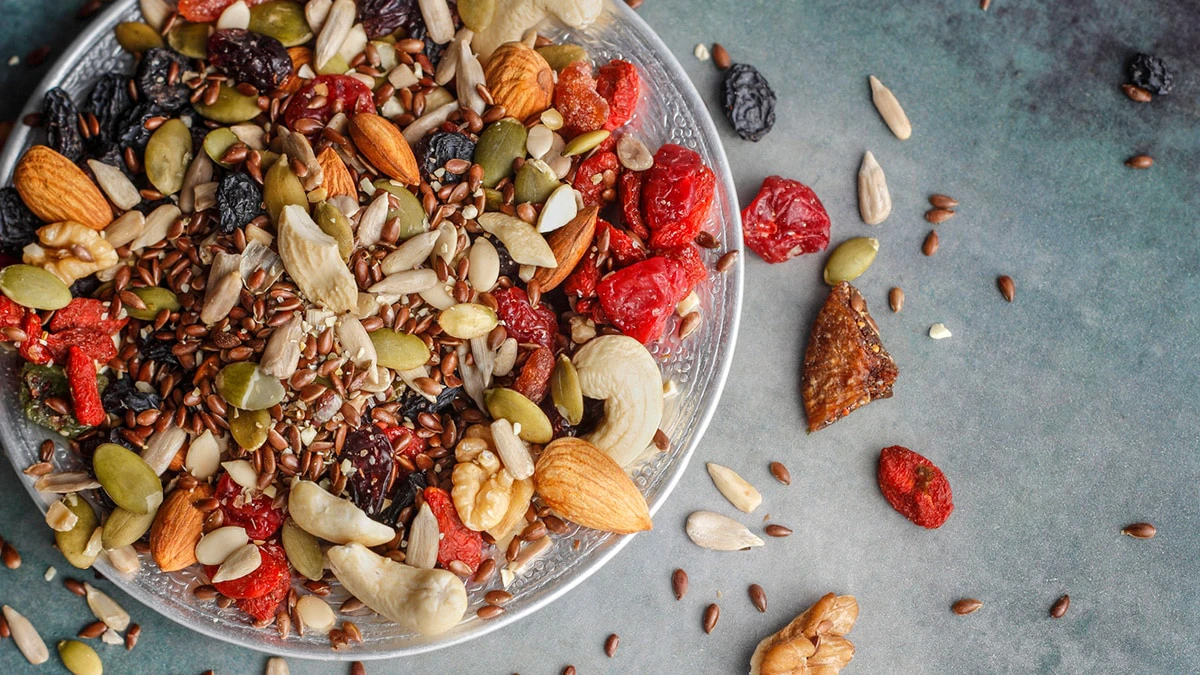We often assume that certain foods are undoubtedly healthy because of how they are marketed. Words like “multigrain,” “protein,” “badam,” and “Greek” conjure images of nutrient-dense meals and snacks.
However, a closer examination of the labels tells a different tale: a lot of these meals conceal high sugar content. In her recent Instagram post, nutritionist Lovneet Batra has revealed 8 “healthy foods” that are loaded with hidden sugar. These include flavoured Greek yoghurt, flavoured milk, nut butter, muesli, protein bars, health mix/trail mix, frozen yoghurt, and multi-grain bread.
“We often pick foods that sound healthy – but labels can be deceiving. Many everyday favourites sneak in surprising amounts of sugar,” Lovneet write in the caption.
1. Flavoured Greek Yoghurt
While Greek yoghurt is high in protein, flavoured varieties may have as much as 8 grams of added sugar per 100 grams. Nutritionists advise sticking to a natural option by selecting plain yoghurt and adding your own fruit. Always read the entire label rather than just the prominent “Greek” statement on the front.
2. Flavoured Milk (Badam Milk)
Although badam milk is considered healthy, bottled variations might include 12 grams of sugar per 100 grams, which is almost as much as a soft drink. Do not allow the term “traditional” to deceive you; instead, choose homemade or unsweetened varieties.
3. Nut Butter
Nut butters are a common source of protein for both adults and children, but they can be deceptive. Besides additional oils and salt, some jars have 15 grams of sugar per 100 grams. Nuts and perhaps some salts are the only ingredients in the healthiest nut butters. It is a “red flag” if sugar appears in the first three ingredients.
4. Muesli
Muesli is often considered a healthy choice made with oats and nuts. However, a lot of marketed versions contain 12 grams of sugar per 100 grams by silently adding candied fruit, syrups, or sweetened flakes. Making your own mixture using unsweetened dried fruit and plain oats is a safer option.
5. Protein Bars
Protein bars, which are marketed as post-workout sustenance, may actually contain more sugar than nutrition. Some are more like candy bars, weighing up to 16 grams of sugar per 100 grams. Experts advise choosing bars that weigh less than 5 grams each.
6. Trail Mix / Health mix
Although nuts and seeds are nutritious, their sugar content soars to 24 grams per 100 grams when combined with chocolate, honey, or yoghurt-coated pieces. Raw or dry-roasted mixes are the best option; if they glisten, they are most likely sugared.
7. Frozen Yogurt
Frozen yoghurt is often misrepresented as being healthier than ice cream. Despite being low in fat, many varieties include 18 grams of sugar per 100 grams. Lovneet says that “low fat” often equates to “high sugar.”
8. Multigrain Bread
Even “multigrain” bread occasionally contains whole grain and can have 4 grams of sugar per 100 grams, according to Lovneet. Instead of depending on texture or colour, look for “100% whole grain” on the ingredient list.
The bottom line is that being labelled as “healthy” does not always imply being healthy. The best defence against hidden sugars is to check nutrition labels and look past the front of the package.
